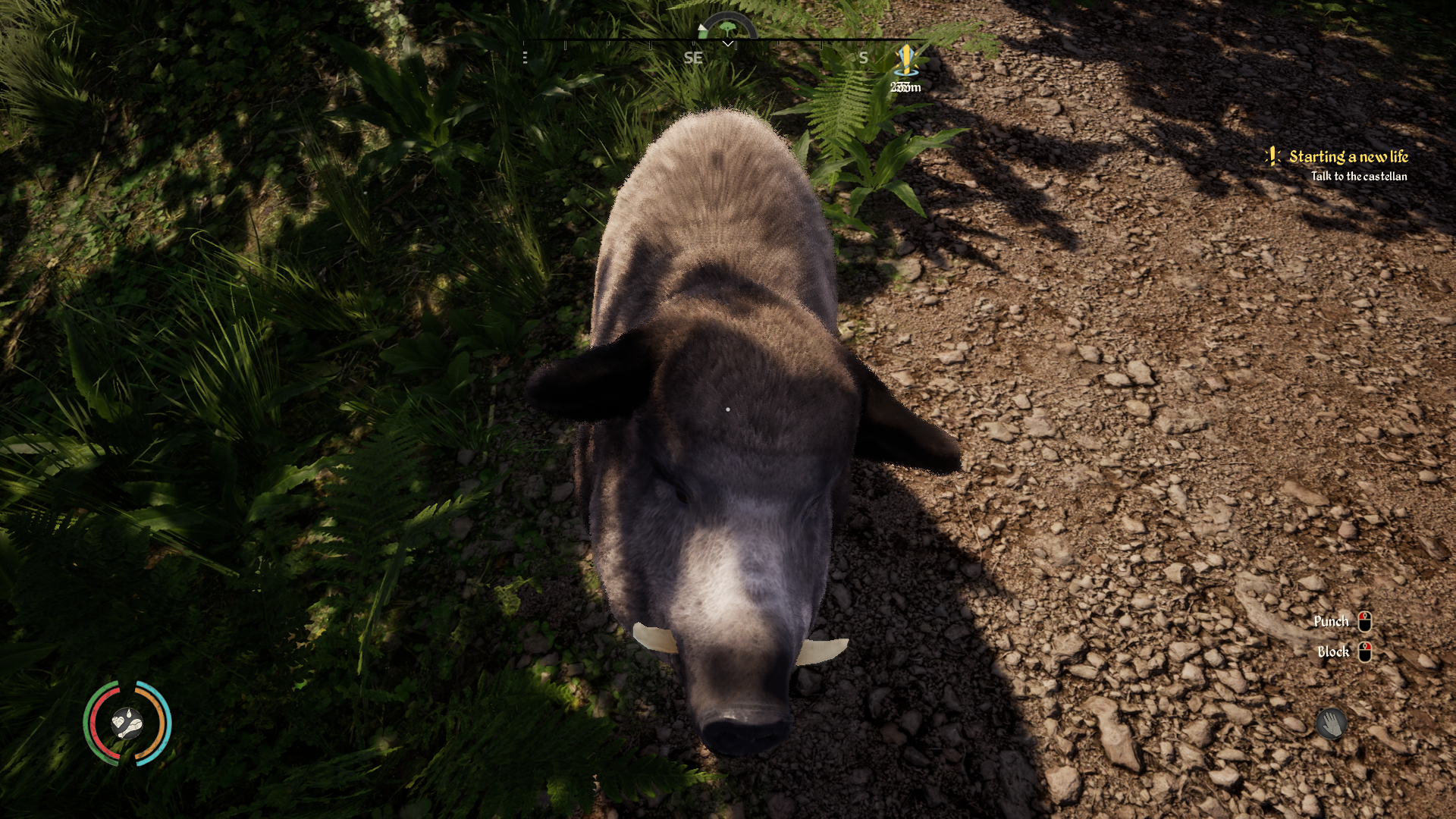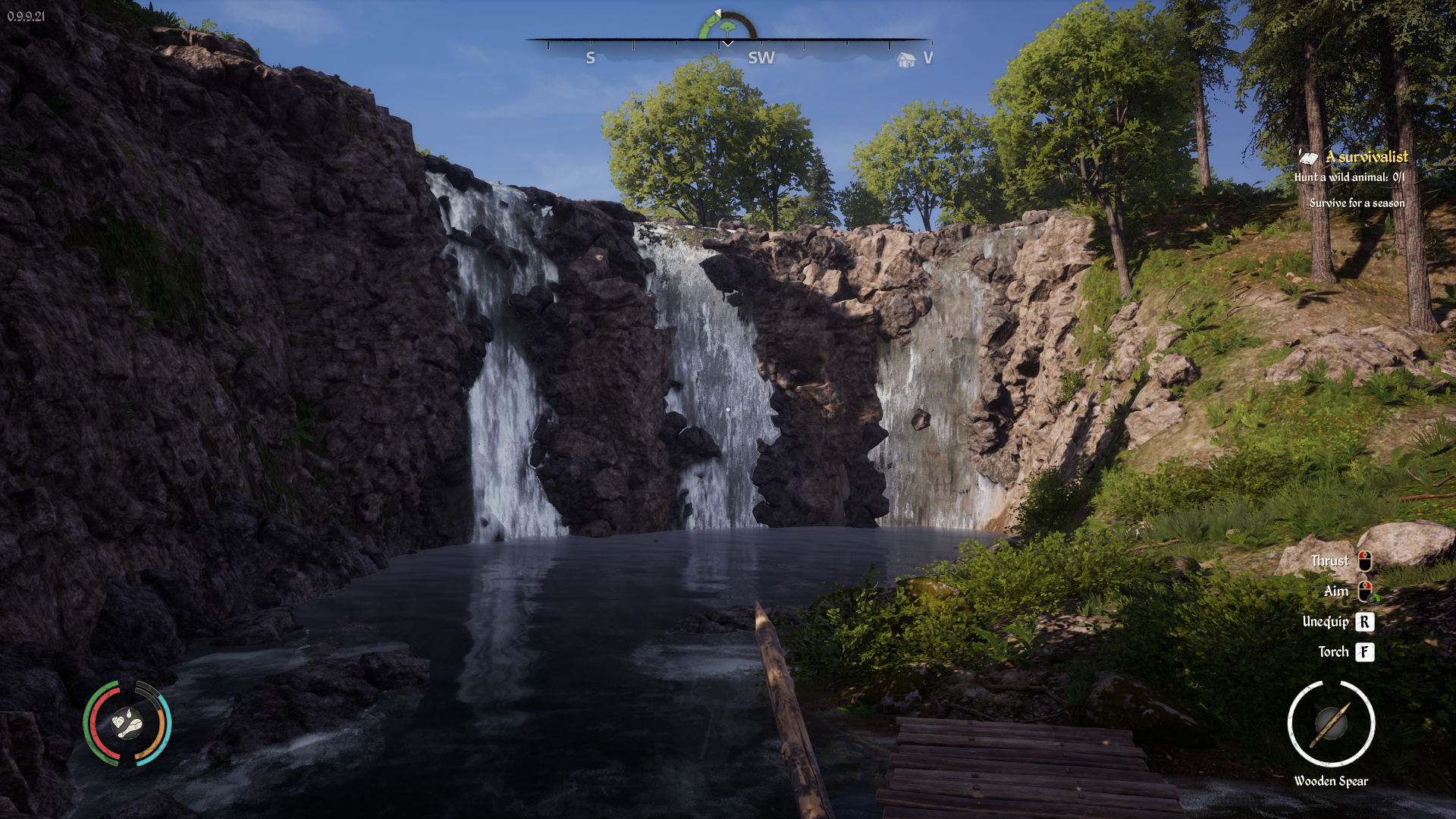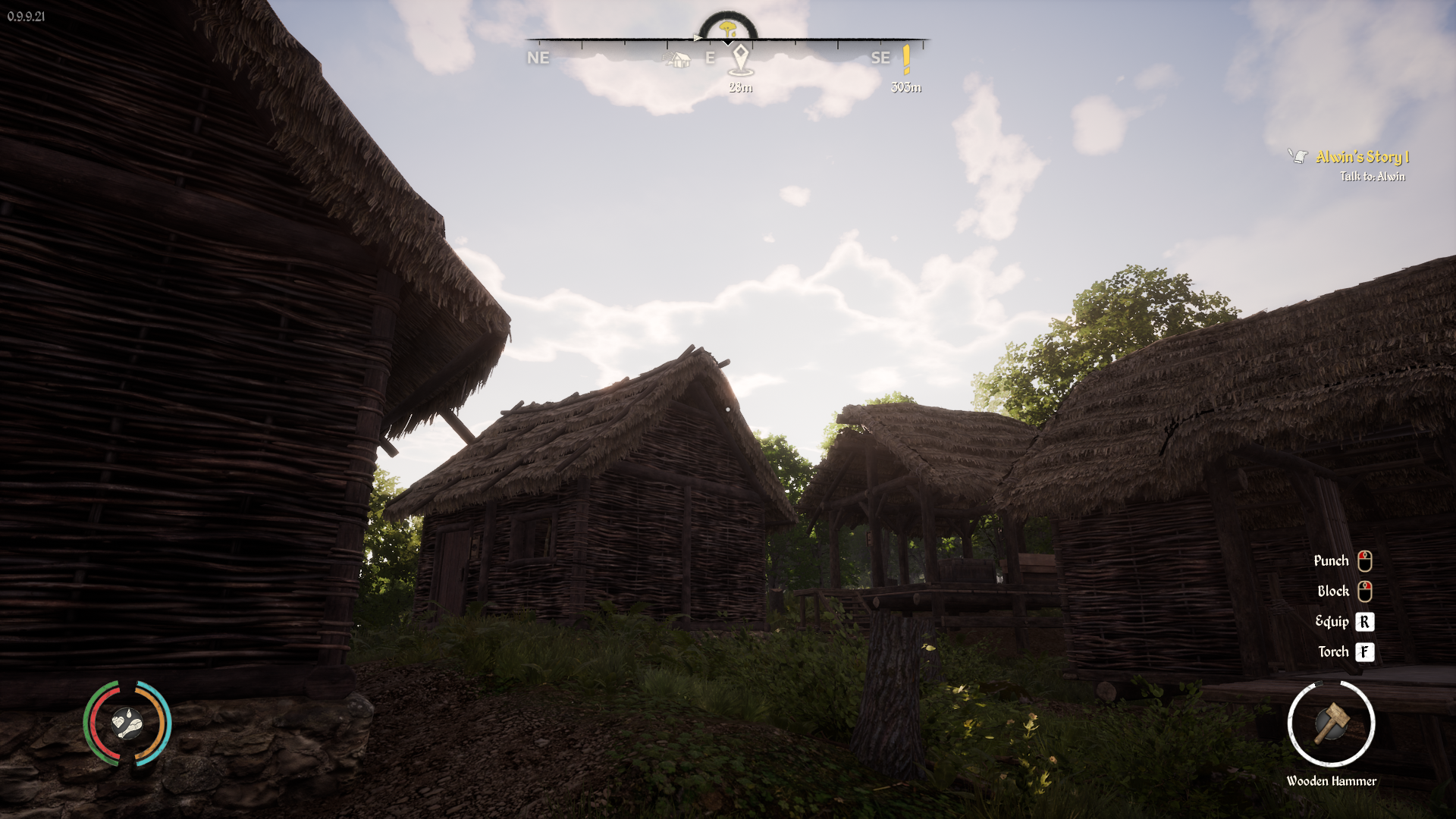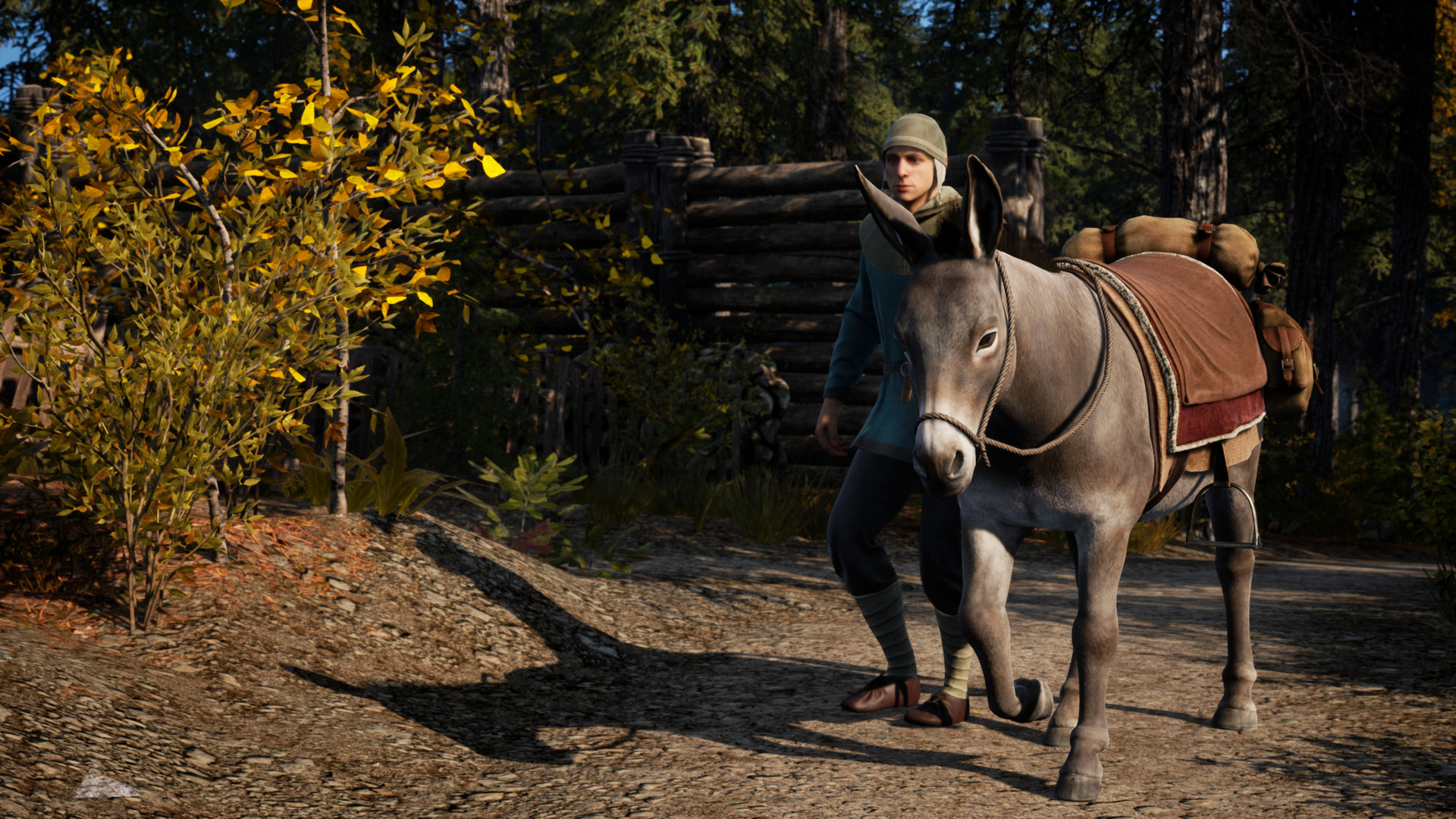Our Verdict
Medieval dynasty is a fun, relaxing survival RPG, even if it's not always exciting.
PC Gamer's got your back
What is it? A medieval survival RPG management sim.
Expect to pay £27/$30
Release Out now
Developer Render Cube
Publisher Toplitz Productions
Reviewed on GTX 1070 Dual OC, Windows 10, Intel Core i5-7600k, 16GB RAM
Multiplayer? No
Link Official site
Having put the finishing touches on the fourth building in my little village-to-be, I realise I need to go out hunting to get more food for the few denizens that dwell within it. It's my job to look after them, after all, and that means building shelter and services, but also going out to hunt some bison or deer for meat. I feel pretty confident as I head out… but end up dying to a boar taking a bite out of my ankle.
This moment helped give me the respect I needed for the world of Medieval Dynasty, because while it looks tame and feels like an RPG a lot of the time, it still has the heart of a survival game. This means it’s very content to kill you where you stand if you’re not paying it proper attention. Progressing means learning to balance the gentler and harsher aspects of the game.
Things can get a little odd where the two meet. You gain levels in the different skillsets simply by using them—in theory encouraging you to go out into the world and try out the skills you want to master. In practice you end up with a lot of wooden spoons.

Remember the similar system in Skyrim? Where you ended up grinding up your blacksmithing skills by filling your bags with a ridiculous number of daggers? Imagine that, but instead of working towards magic swords, you just want to make a shovel, and instead of forging daggers you’re whittling spoons out of sticks. On the other hand, it was genuinely exciting once I did get the shovel. Now I can dig up the stump after I cut down a tree! And at least selling all that cutlery helped fund my advancement, too.
Trade off
You see, along with grinding up to be able to craft new things and increase your passive buffs, you also need to spend money to unlock new blueprints. I’m not really sure who you’re paying that money to, as you can do it in your menu, but that’s how it works. You can also spend money at merchants in each of the villages to buy food, new equipment, or just anything you don’t want to craft or don’t have the ability to craft yet. Mechanically it’s all pretty standard survival game stuff, but that extra smattering of RPG progression to it all does a lot to keep things compelling.
The main thing that sets it apart from many other survival games, though, is that it’s not just about staying alive, but how well you can manage your little community. It’s called Medieval Dynasty for a reason. You need to start your own little town, and keep building it up from being a single house for you to sleep in, to a bustling rural metropolis full of people with different jobs that you have to keep fed, watered, and warm. Every person you recruit has their own skills, age, and preferences, and learning about those and matching them up with the right job will make for a happier, and far more productive, village.

Assigning jobs means they’ll help out with resource gathering and stuff as well, but you’re the one in charge. I assume this is what it’s like to be a manager—or at least what it would be like if along with assigning work and drawing on whiteboards you also had to give your employees the ingredients to cook their dinner, and firewood for their cosy home that you built with their own two hands and a hammer.
As time moves on, new threats appear. While combat isn’t really the main focus of Medieval Dynasty, it is there. Different weapons offer different attack ranges and uses. Knives, for example, can be used to hack away at an opponent as long as you have stamina, while spears can be used to poke an enemy, but are far more useful at range. You’ll mostly be fighting off wildlife as you go out hunting, but you’ll also occasionally be attacked by small groups of roaming bandits as well. While they’re not a huge threat, your villagers aren’t much for fighting, so you’ll need to go out to meet them before they cause too much damage, or your little slice of paradise will suffer.
Pacemaker
Medieval Dynasty has some pretty comprehensive difficulty sliders that allow you to do things like remove temperature as a concern entirely, or massively reduce or increase the amount of food people need to live. You can even stop the bandit attacks if you want to live in a world where people are nice all the time, or make seasons as long or as short as you want. It’s a surprisingly accessible approach. The basic systems, like how long it takes to build a building, remain the same, but the ability to remove and alter so many things means you can either play this as a brutally difficult game where you’re constantly against the clock, or turn it into a casual chillout session akin to a slightly grittier Animal Crossing.

Even with things set to be a little more brutal, Medieval Dynasty still feels as though it’s been designed as a second life, rather than a fantasy one. There’s a story here, and it’s not bad, but it’s designed to walk you through Medieval Dynasty's mechanics rather than presenting a world-changing narrative. That means you’ll be trying to keep everyone happy and safe instead of trying to slay dragons or visit other worlds. It’s really quite relaxing.
Less relaxing, though, is the fact that the game doesn’t always do a great job of teaching you things, and there’s an awful lot to learn here. You’ll often have to consult the in-game “Knowledge” tab to be able to learn what you’re meant to be doing. Information can be in weird places when you’re trying to build new tools too. But once you’ve put a bit of time in, these become fairly minor inconveniences.
Medieval Dynasty isn’t necessarily the most exciting game out there, but it’s comforting. It’s the kind of thing you can jump into for an hour or so a night and see your progress in the form of a new building, or a brand-new member of your very own village. Or you might jump in expecting a quick visit and find yourself losing four hours, emerging from a trance later with a warm, fuzzy feeling in your stomach.
Medieval dynasty is a fun, relaxing survival RPG, even if it's not always exciting.


